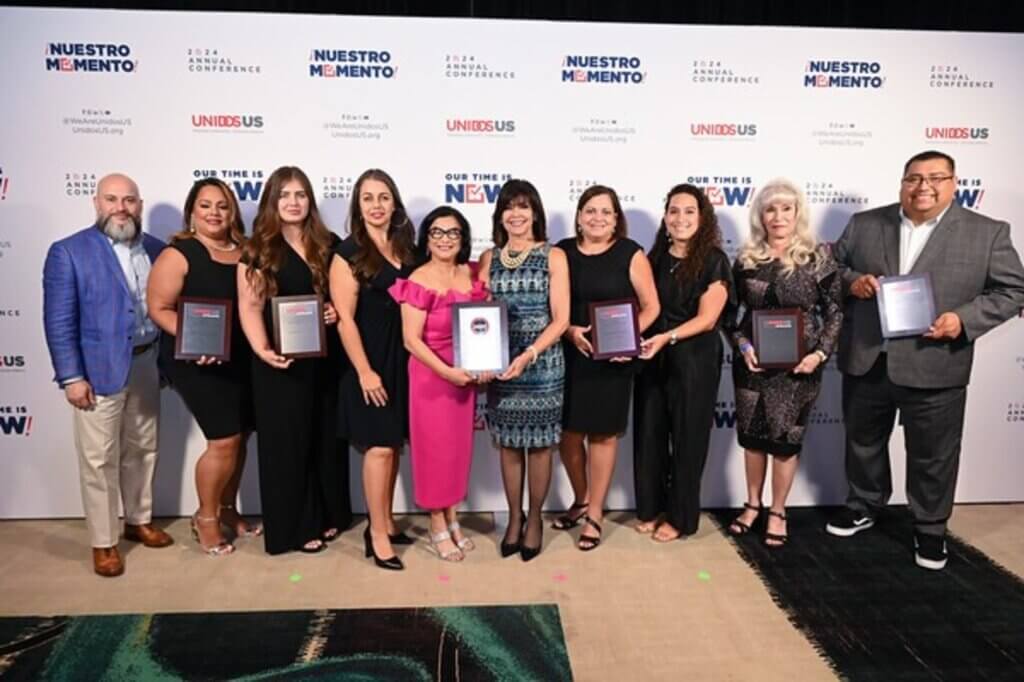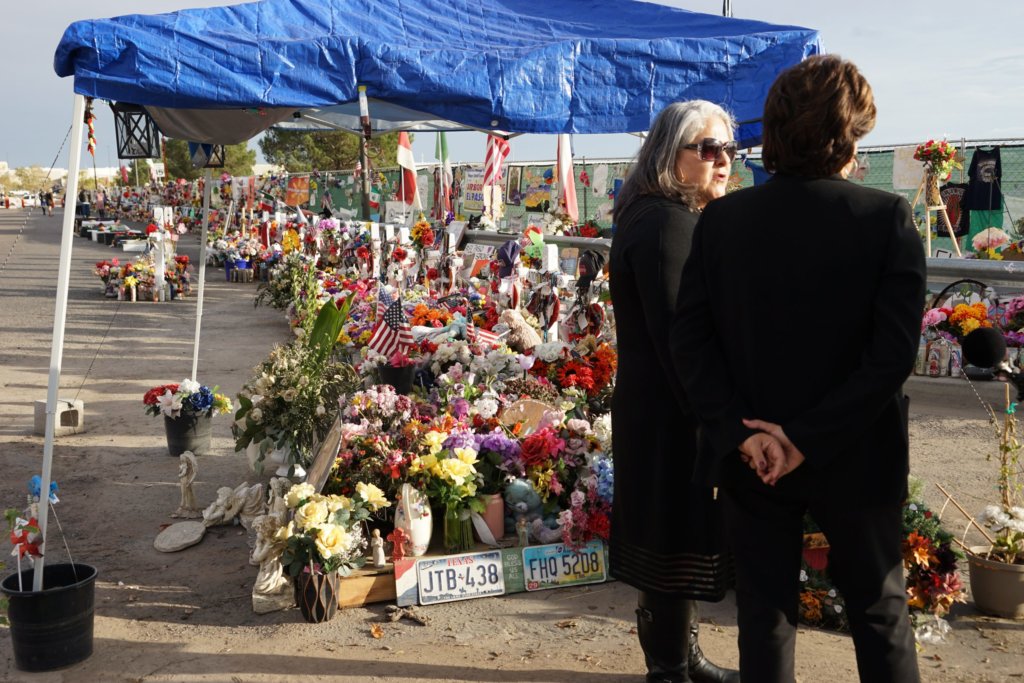How the Coronavirus pandemic is affecting Latinos
The Coronavirus pandemic is affecting all of us in one way or another, and after taking care of our employees—sending them to work from home for their safety and the safety of their families—UnidosUS made sure to reach out to the core of our organization: our Affiliate Network.
We wanted to hear from them directly, the challenges these community-based organizations are facing, and the challenges they hear from our community. Thanks to that communication, we were able to include their concerns to the letter to Congress UnidosUS’s President and CEO Janet Murguía sent. Read the full letter here.
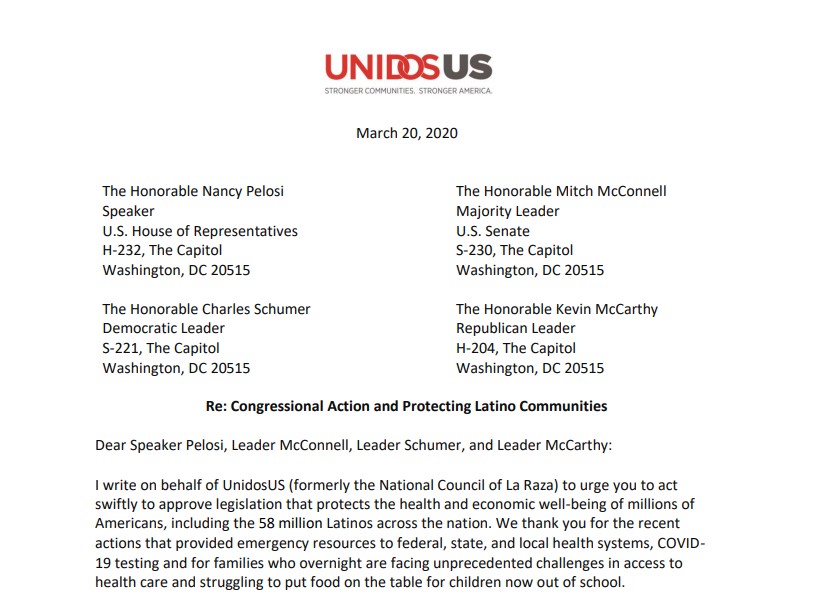
By Beatriz Paniego-Béjar, UnidosUS Content Specialist
The Pew Research Center released a survey last week that stated how Hispanics are more concerned than the average American about the consequences the COVID-19 outbreak is going to bring, especially in the health and economic fronts. Those consequences are already a reality for many Latinos in the United States (the City University of New York found out that four in ten Latinos have lost their jobs in New York City alone due to the Coronavirus pandemic), and these are some of the same worries UnidosUS is hearing in our communications with Affiliates.
The worries of the community
UnidosUS wanted to learn the impact the Coronavirus crisis is having in our Affiliate Network and the clients they serve. We wanted to bring the voices of our community to Congress to influence the legislation being discussed to protect the American people from the rapid spread of COVID-19. To that end, we reviewed their communications made public, sent them a short survey, had one-on-one calls, and held a listening session with President and CEO Janet Murguía. With those, we learned that the following are major fears among Latinos at this moment:
- Income insecurity, as many are being laid off from the hospitality and entertainment sectors and loosing opportunities on the gig economy. The other big concern lays on the undocumented population our Affiliates serve, as they don’t have access to unemployment benefits.
- Health care and safety, since our communities are afraid of asking for treatment—especially if it means revealing their immigrant status—as well as of the cost of treatment and its availability in rural areas.
- Information management, meaning how to process all the information available in a simple, clear, and accurate way given the amount of information and the speed of the developments. The lack of information in Spanish and of technology to access information are also issues.
- Food insecurity, due to school closures, the changing rules of the Supplemental Nutrition Assitance Program (SNAP), and the reduction of funds in the Electronic Benefits Transfer (EBT) system, also known as food stamps.
- Lack of access to technology (internet and equipment) for students to study from home, and workers to work remotely.
- Potential predatory scams of Centers for Disease Control impersonators charging for COVID-19 testing.
The worries of CBOs
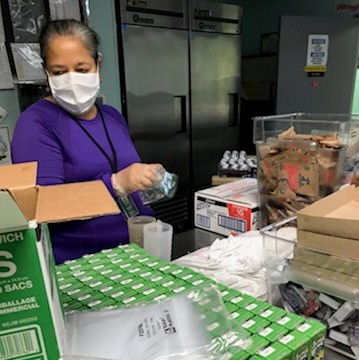
Many of our Affiliates are small community-based organizations that are concerned about their financial stability, since prospects for funding are unclear and temporary layoffs have already taken place. They are wondering how they will keep their doors open and pay their staff if the situation is prolonged.
Furthermore, their usual modes of operation have been disrupted and, under these circumstances, there is limited capacity and opportunity to reach out to the community and provide direct services. Some are moving operations to online meetings, but capacity is an issue for other organizations, which fuels their concern about meeting grant requirements and the constrain that will put on their financial capabilities.
- John Menditto, from East Coast Migrant Head Start Project, which provides services to farmworker families in seven states, told us they have suspended center-based child care services and have commenced remote support services to families—including the delivery of meal packages, infant formula, and sanitizing wipes. In addition, teachers are preparing individualized learning activities for children, distributing age-appropriate books, and providing information to parents on mitigation strategies for farmworker families, and so on. “Suspending operations in Florida puts additional burden on these families. We will resume operations as soon as circumstances allow.”
- Luis Granados, Executive Director of MEDA in California, shared: “The reality for small businesses has changed dramatically and quickly: the owners of these ventures found that they had a vastly diminished customer base and negligible cash flow. They were then compelled to lay off their workers—30% of whom may not have legal status. We must pivot our approach just as quickly, as a means to preventing commercial evictions, forgiving or delaying existing debt payments and disbursing no- or very-low-cost capital. We must provide solutions for our small businesses during this crisis.”
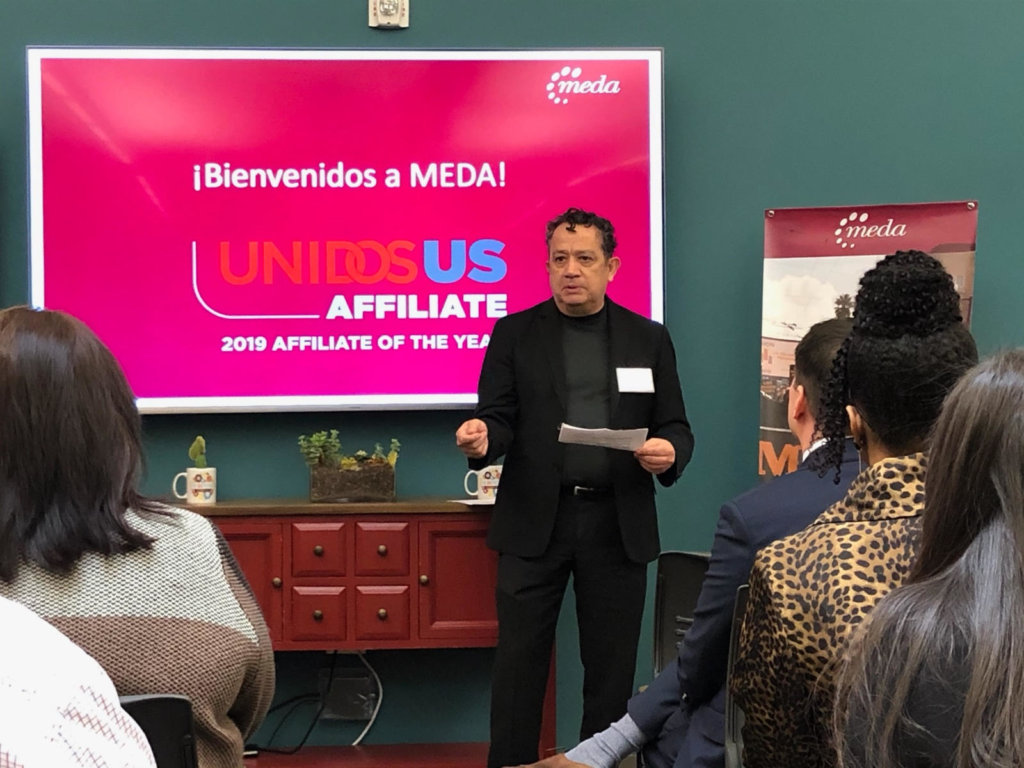
UnidosUS’s response
After hearing the concerns of our Affiliate Network, we called for provisions to provide relief to community-based organizations in the new relief bill that was being discussed in Congress. In a letter addressed to Speaker of the House Nancy Pelosi, Senate Majority Leader Mitch McConnell, Democratic Leader Charles Schumer, and Republican Leader Kevin McCarthy, Janet Murguía wrote:
“Latinos are helping to provide human needs services to families through local community-based organizations. UnidosUS has a network of nearly 300 community-based Affiliates across the United States and Puerto Rico, working currently to protect their employees while continuing to provide needed services at the local level. They too are desperately in need of support to continue to provide vital services.”
During this time of crisis, the work of our Affiliate Network is more crucial and important than ever. We are deeply grateful to the help they continue to provide to our families, and to all 900+ advocates that signed our petition asking for urgent legislation to protect families and workers. While we welcome the $2 trillion deal passed by Congress with the CARES Act last week to provide relief to many families and support for health care providers, millions of immigrants and their families have been excluded from coverage for COVID-19 testing, and treatment and economic assistance. This is why these community-based organizations still need your support. Please consider donating here to continue helping our families and ensuring they are protected during this crisis.
Learn more about the CARES Act in our latest Policy Outlook here, and about UnidosUS’s overall response to the Coronavirus pandemic in this page.

